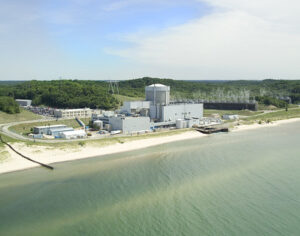Recently, I have been writing about the cost of housing in Ann Arbor, Ypsilanti, and Washtenaw County. To put a little more context around housing costs in this area, it may be valuable to look at the home-price-to-income ratio for Washtenaw County and for the US in general.
In Washtenaw County, the home-price-to-income ratio was 4.30 in 2023. Using US Census Bureau data from the American Community Survey, the median home value was $360,200 and the median household income was $83,754. These data don’t consider the actual sales prices of homes here, so this result may not reflect changes in the market.
Using historical Zillow data for the sales price of homes in Washtenaw County in December 2023, and the median income data for Washtenaw County in 2023, at 4.64, the home-price-to income ratio looks a little different than it does using Census Bureau data. These data reflect changes in the cost of housing in Washtenaw County in 2023.
In Ann Arbor, using Zillow data from December 2023 and the American Communities Survey data from 2023, the home-price-to-income ratio in Ann Arbor was about 6.75. All of this is relatively good news for the City of Ann Arbor. Rising home prices push the city’s property tax revenues higher, but property taxes on primary residences are throttled by Proposal A’s property tax cap. Property taxes rise only as fast as the rate of inflation or 5%, whichever is greater. In most years, the rate of inflation prevails. In only one year (2022) since the adoption of Proposal A has inflation risen beyond 5%.
So, in most years in Michigan, a primary residence’s SEV “stores” this excess valuation until either property values drop or until the property sells, at which time the taxable value “resets” to the home’s current SEV.
Cost of housing and property tax cap create a constantly moving target
This is a bomb of sorts for property purchasers, especially if they buy a house that has not sold recently. The sale of a long-held property can trigger a huge jump in the property taxes, especially in pricier areas. It serves to discourage first-time buyers, and even people who want to downsize from a larger home to a smaller one. The prospect of paying thousands of dollars more per year in property taxes on top of high mortgage payments with high interest rates puts home purchases out of range for middle income earners.
Homeowners who do own property here will not be able to upsize, downsize, or otherwise replace their current home because the cost of housing combined with the attendant increases in property taxes will make that unaffordable, especially for people on limited incomes or fixed incomes.
This future doesn’t just apply only to residents in areas like Ypsilanti, Milan, and Chelsea. It applies to all of us, in every nook and cranny of the county. If Washtenaw County does not develop resources to assist its current residents in increasing their household incomes, the inevitable outcome is that lower-earning households that don’t already own a home here will be permanently priced out of the Washtenaw County market. Further, the definition of “lower earning households” is continually rising. Eventually, that line is going to consume every household in Washtenaw County, making it possible to sell, but impossible to buy something else.
Is this really what we want?
Photo Credit: Michaela Pereckas




























